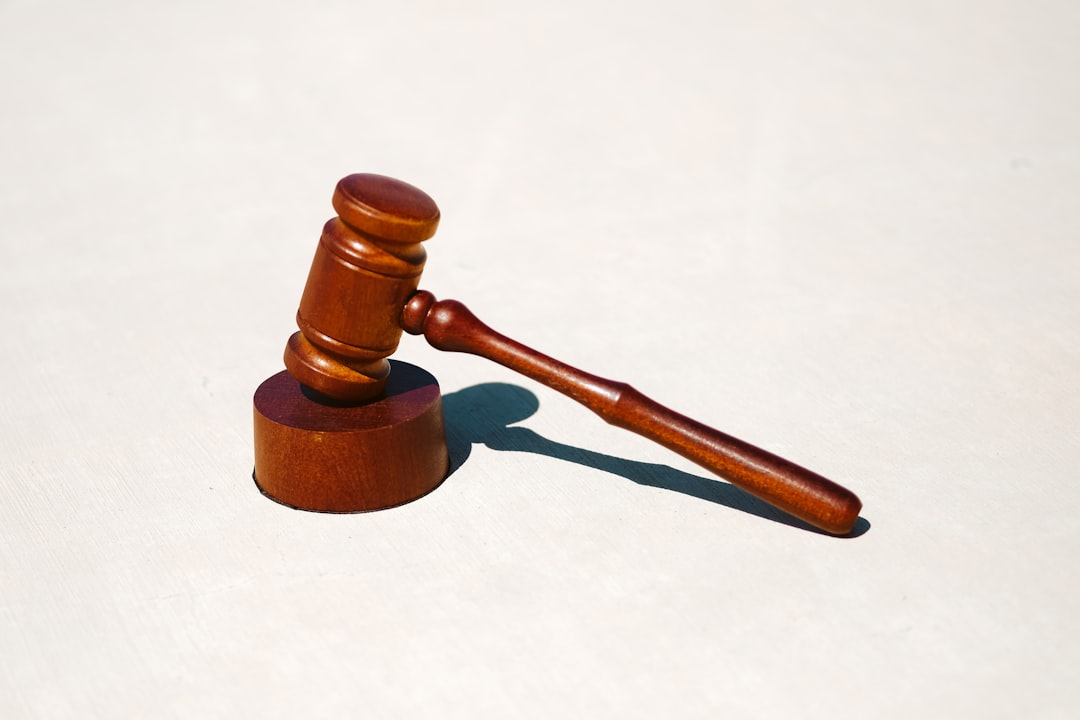Robocall harassment in Maryland is regulated by the Telephone Consumer Protection Act (TCPA), requiring prior consent. If you're a victim, a lawyer for TCPA Missouri can help enforce your rights and seek compensation. These specialists navigate complex regulations, advocate for policy change, document violations, file complaints, and initiate legal actions against robocall violators. Effective communication with regulators and community collaboration are key to achieving stricter robocall policies, ensuring consumer privacy and a quieter environment.
Maryland residents often face intrusive robocalls, violating their privacy under the Telephone Consumer Protection Act (TCPA). This guide explores effective strategies for change, led by experienced legal advocates. We break down navigating TCPA regulations in Maryland and how a specialized lawyer for TCPA Missouri can help. From identifying violations to collaborating with regulators, learn how collective action can curb excessive robocalls. Discover the power of legal advocacy to protect your rights and shape policy reforms.
Understanding Robocalls and the TCPA in Maryland

Robocalls, or automated telephone calls, have become a ubiquitous part of modern communication, but they often come with unwanted consequences. In Maryland, these pre-recorded messages are regulated by the Telephone Consumer Protection Act (TCPA), a federal law designed to protect consumers from excessive or annoying phone marketing. The TCPA prohibits automatic dialers and prerecorded messages unless the caller has obtained prior express consent from the recipient.
If you’re facing persistent robocalls or believe your rights under the TCPA have been violated, consulting a lawyer specializing in TCPA Missouri can be beneficial. These legal experts can guide you through Maryland’s specific regulations and help determine if your case warrants legal action. They’ll ensure that your rights are protected and work towards securing compensation for any harassment or inconvenience caused by unwanted robocalls.
The Role of a Lawyer in Navigating TCPA Regulations

When advocating for change in robocall policies, such as those governed by the Telephone Consumer Protection Act (TCPA), having a lawyer by your side is invaluable. A lawyer specializing in TCPA Missouri laws can serve as a guide through the complex regulatory landscape, ensuring compliance and offering strategic advice. They play a crucial role in navigating the intricacies of the TCPA, which prohibits certain automated telemarketing calls without prior consent.
These legal experts can help individuals and businesses understand their rights and obligations under the law. They possess in-depth knowledge of court interpretations and regulatory updates related to the TCPA, enabling them to predict potential outcomes and devise effective strategies. Moreover, a lawyer can represent you in legal proceedings, negotiate with opposing parties, and advocate for your interests, especially when seeking damages or enforcement actions against violators.
Identifying and Documenting Violations of TCPA Laws

Identifying and documenting violations of TCPA laws is a crucial step in advocating for change in robocall policies, especially in Maryland. The Telephone Consumer Protection Act (TCPA) restricts automated telephone marketing practices, including robocalls, to protect consumers from unwanted and intrusive calls. If you receive a robocall, it’s essential to note the caller’s information, such as the phone number, company name, and the specific promotional message or content of the call.
You can use this data to file complaints with relevant authorities, like the Federal Trade Commission (FTC), which enforces TCPA regulations. Documenting these violations helps build a case for stricter enforcement and potential legislative changes. Additionally, consulting with a lawyer specializing in TCPA Missouri can provide valuable guidance on navigating legal options and amplifying consumer voices to shape more effective robocall policies.
Legal Strategies to Advocate for Change in Robocall Policies

To effectively advocate for change in Robocall policies, legal strategies play a pivotal role. One powerful tool is the Telephone Consumer Protection Act (TCPA), a federal law designed to curb excessive robocalls. A lawyer specializing in TCPA Missouri can guide you through filing complaints against violators, seeking damages, and even initiating class-action lawsuits. These legal actions not only hold call centers and telemarketers accountable but also serve as deterrents.
Additionally, collaborative efforts with consumer protection agencies and advocacy groups can amplify your voice. By joining forces, you can lobby for stricter regulations and educate policymakers about the negative impact of robocalls on Maryland residents. Legal strategies, combined with community action, have the potential to bring about significant changes in robocall policies, ensuring a quieter and more peaceful communication environment for all.
Effective Communication and Collaboration with Regulators

Effective communication is key when advocating for change in robocall policies, and collaboration with regulators is essential to drive meaningful progress. Reach out to the Maryland regulatory bodies responsible for telecommunication laws, expressing your concerns about robocalls and their impact on consumers. Well-crafted letters or emails can help convey your message clearly. As a seasoned lawyer specializing in TCPA (Telephone Consumer Protection Act) cases, such as those involving Missouri residents, you understand the importance of precise language and factual evidence to support your arguments.
When engaging with regulators, present research or data highlighting the scale of robocall issues in Maryland. Offer specific examples of how these calls infringe upon personal privacy and cause distress to recipients. Collaborate with other consumer advocacy groups or industry experts to build a strong case for policy reforms. Regular communication ensures that your voice is heard, fostering a collaborative environment to create more robust protections against unwanted robocalls.






